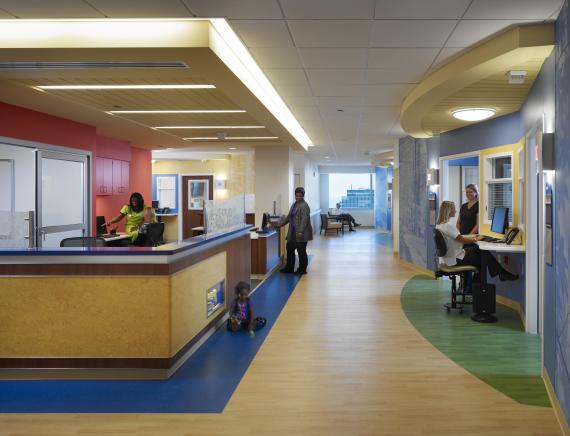Nine out of 10 healthcare providers say the Affordable Care Act (ACA) will be a “step forward” in addressing long-term health issues in the United States once it is fully established, and 83 percent say it is good for Americans, according to a survey of more than 190 healthcare leaders by Mortenson Construction.
The providers did not make an unqualified endorsement of the ACA, however. A full 86 percent say the ACA needs major changes or revisions.
Providers are excited about opportunities to improve while worried about the transition under way. Nearly four out of five, or 79 percent, say health reform is creating significant uncertainty for their organizations and the healthcare industry.
Tellingly, 74 percent predict it will challenge their organization’s financial condition with 72 percent saying it already has.
Other insights:
• Overall optimism about the future of U.S. healthcare among healthcare providers dropped from 85 percent optimistic in 2012 to 60 percent optimistic in 2013
• Four out of five say the ACA will successfully shift reimbursements to pay for the quality of outcomes
• 71 percent say it will improve quality and outcomes, and 65 percent say it will lower the cost of care
• 95 percent of healthcare providers believe specialized facilities, such as MRI centers, cancer centers and urgent care centers will grow in prominence in the next three years
“The healthcare market is in the process of adapting to a new normal,” said Bob Nartonis, Senior Vice President and National Healthcare Market Leader at Mortenson. “Many institutions are rethinking their basic assumptions regarding how they should operate going forward, understanding that there are new rewards for those who can successfully adapt and unwanted consequences for those who cannot.”
To understand the impact of the Affordable Care Act on healthcare providers and their facilities, Mortenson spoke to healthcare professionals at the Healthcare Design Conference in November to better understand these issues and the impact on design and construction trends. More than 190 professionals provided feedback, including healthcare administrators and facilities leaders, architects, and academics.
The new models for healthcare delivery and payment are requiring new approaches to healthcare facilities. With the pressing need to become more efficient and cut costs, they are emphasizing more flexibility in facility design and layouts that make it easier for patients to find their way around and for multi-disciplinary teams to work together. They also are relying more heavily on innovative technologies and project delivery methods to streamline construction to improve success.
Mortenson is one of the leading healthcare contractors in the U.S. and has completed more than 18.5 million square feet of healthcare construction and renovations nationwide in the past 10 years.
Download a free copy of the 2014 Mortenson Construction Healthcare Industry Study.
Related Stories
Urban Planning | Apr 12, 2023
Watch: Trends in urban design for 2023, with James Corner Field Operations
Isabel Castilla, a Principal Designer with the landscape architecture firm James Corner Field Operations, discusses recent changes in clients' priorities about urban design, with a focus on her firm's recent projects.
3D Printing | Apr 11, 2023
University of Michigan’s DART Laboratory unveils Shell Wall—a concrete wall that’s lightweight and freeform 3D printed
The University of Michigan’s DART Laboratory has unveiled a new product called Shell Wall—which the organization describes as the first lightweight, freeform 3D printed and structurally reinforced concrete wall. The innovative product leverages DART Laboratory’s research and development on the use of 3D-printing technology to build structures that require less concrete.
Market Data | Apr 11, 2023
Construction crane count reaches all-time high in Q1 2023
Toronto, Seattle, Los Angeles, and Denver top the list of U.S/Canadian cities with the greatest number of fixed cranes on construction sites, according to Rider Levett Bucknall's RLB Crane Index for North America for Q1 2023.
University Buildings | Apr 11, 2023
Supersizing higher education: Tracking the rise of mega buildings on university campuses
Mega buildings on higher education campuses aren’t unusual. But what has been different lately is the sheer number of supersized projects that have been in the works over the last 12–15 months.
Architects | Apr 10, 2023
Bill Hellmuth, FAIA, Chairman and CEO of HOK, dies at 69
William (Bill) Hellmuth, FAIA, the Chairman and CEO of HOK, passed away on April 6, 2023, after a long illness. Hellmuth designed dozens of award-winning buildings across the globe, including the Abu Dhabi National Oil Company Headquarters and the U.S. Embassy in Nairobi.
Contractors | Apr 10, 2023
What makes prefabrication work? Factors every construction project should consider
There are many factors requiring careful consideration when determining whether a project is a good fit for prefabrication. JE Dunn’s Brian Burkett breaks down the most important considerations.
Mixed-Use | Apr 7, 2023
New Nashville mixed-use high-rise features curved, stepped massing and wellness focus
Construction recently started on 5 City Blvd, a new 15-story office and mixed-use building in Nashville, Tenn. Located on a uniquely shaped site, the 730,000-sf structure features curved, stepped massing and amenities with a focus on wellness.
Smart Buildings | Apr 7, 2023
Carnegie Mellon University's research on advanced building sensors provokes heated controversy
A research project to test next-generation building sensors at Carnegie Mellon University provoked intense debate over the privacy implications of widespread deployment of the devices in a new 90,000-sf building. The light-switch-size devices, capable of measuring 12 types of data including motion and sound, were mounted in more than 300 locations throughout the building.
Affordable Housing | Apr 7, 2023
Florida’s affordable housing law expected to fuel multifamily residential projects
Florida Gov. Ron DeSantis recently signed into law affordable housing legislation that includes $711 million for housing programs and tax breaks for developers. The new law will supersede local governments’ zoning, density, and height requirements.
Energy Efficiency | Apr 7, 2023
Department of Energy makes $1 billion available for states, local governments to upgrade building codes
The U.S. Department of Energy is offering funding to help state and local governments upgrade their building codes to boost energy efficiency. The funding will support improved building codes that reduce carbon emissions and improve energy efficiency, according to DOE.
















